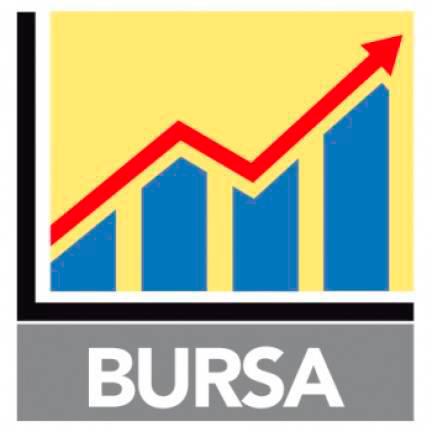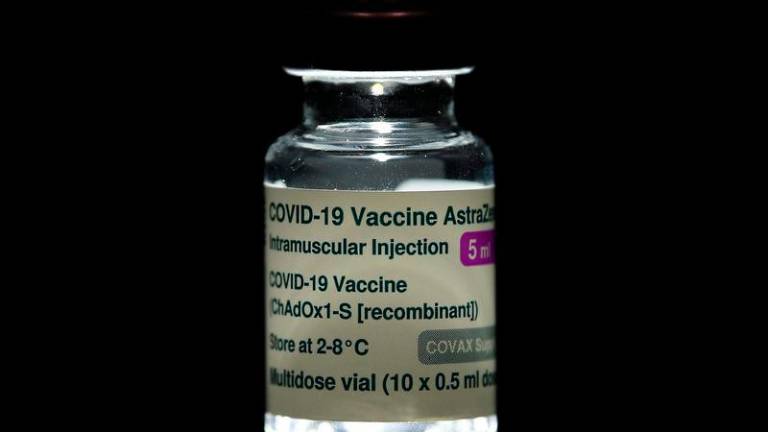KUALA LUMPUR: Bursa Malaysia has bucked the regional market trend to end higher today, lifted by the positive sentiment brought about by the surging crude oil prices and continued buying interest in financial stocks, a dealer said.
At 5 pm, the benchmark FTSE Bursa Malaysia KLCI (FBM KLCI) rose 11.69 points or 0.73 per cent to settle at 1,611.81 from 1,600.12 last Friday.
The key index opened 7.36 points higher at 1,607.48 and moved between 1,607.48 and 1,625.69 throughout the day.
However, market breadth was negative with losers edging past gainers 647 to 621, while 397 counters were unchanged, 507 untraded and eight others suspended.
Total volume increased to 9.80 billion units worth RM6.28 billion from last Friday’s 7.99 billion units worth RM5.15 billion.
Regionally, Hong Kong’s Hang Seng Index fell 1.92 per cent to 28,540.83, Japan’s Nikkei was 0.42 per cent lower at 28,743.25, South Korea’s Kospi slipped 1.0 per cent to 2,996.11, while Singapore’s Straits Times Index advanced 1.96 per cent to 3,072.88.
A dealer said the Asian stock markets had commenced the week on firmer footing on optimism over the news that the United States’ US$1.9 trillion economic relief package is gaining traction over the weekend, as well as the positive Chinese trade data.
“But most Asian shares reversed the gains on profit-takings and concerns over inflation due to higher crude oil prices,” the dealer said.
Maybank Investment Bank senior chartist Nik Ihsan Raja Abdullah told Bernama that the strong interest in the banking, energy and construction counters continued to support the FBM KLCI today, although the ongoing selling pressure in healthcare and technology sector has mildly weakened the domestic sentiment.
Meanwhile, crude oil prices’ solid run, with the Brent crude surpassing US$70 per barrel, had also put oil and gas stocks in the limelight today, he said.
“The equities market is likely to remain positive after the FBM KLCI has technically broken above the bullish reversal “falling wedge” pattern neckline, which signals the continuation of the prior uptrend.
“Rotational play is set to start, taking into consideration the strong rally in selected blue chips which could kick start profit-taking activities. Accumulate on weakness since the overall bias is up,” he commented.
Among the heavyweights, Maybank increased 14 sen to RM8.50, Public Bank added five sen to RM4.40, Petronas Chemicals advanced 53 sen to RM8.35, Tenaga gained six sen to RM10.40, while IHH Healthcare shed four sen to RM5.29.
Of the actives, Dagang NeXchange gained 8.5 sen to 72 sen and its warrant added 2.5 sen to 33 sen, Sapura Energy improved one sen to 16.0 sen, Sealink International bagged 7.5 sen to 28.5 sen, while Komarkcorp shed 10.5 sen to 33.0 sen.
On the index board, the FBM Emas Index rose 28.51 points to 11,723.77 and the FBMT 100 Index gained 31.98 points to 11,430.55.
The FBM Emas Shariah Index was 54.41 points lower at 12,881.42, the FBM 70 dropped 156.16 points to 15,192.49 and the FBM ACE tumbled 181.96 points to 10,226.03.
Sector-wise, the Financial Services Index soared 237.26 points to 15,690.0, the Industrial Products and Services Index was 2.56 points better at 187.40, while the Plantation Index fell 47.63 points to 7,115.79.
Main Market volume rose to 7.42 billion shares worth RM5.60 billion from last Friday’s 5.77 billion shares worth RM4.46 billion.
Warrants turnover increased to 553.03 million units worth RM105.58 million from 443.22 million units worth RM94.73 million previously.
Volume on the ACE Market improved to 1.83 billion shares worth RM571.06 million from 1.78 billion shares worth RM594.34 million last week.
Consumer products and services accounted for 1.12 billion shares traded on the Main Market, industrial products and services (1.44 billion), construction (270.21 million), technology (1.58 billion), SPAC (nil), financial services (247.22 million), property (316.09 million), plantations (44.35 million), REITs (15.85 million), closed/fund (49,900), energy (1.72 billion), healthcare (86.22 million), telecommunications and media (96.74 million), transportation and logistics (425.56 million), and utilities (55.98 million). — Bernama










